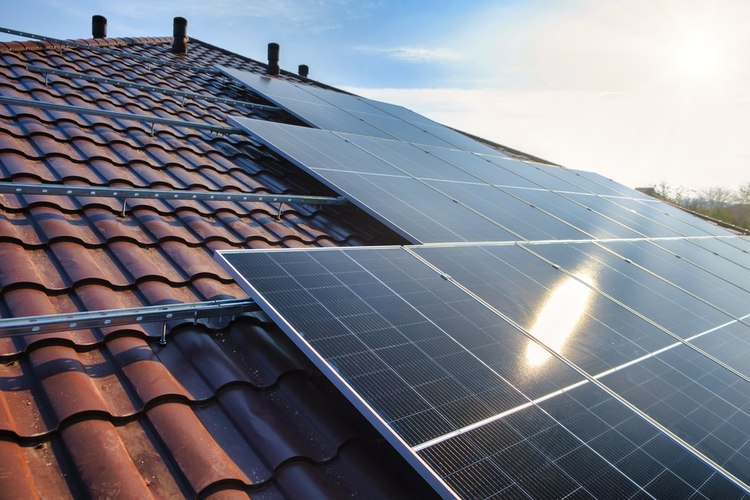The Surprising Affordability of Heat Pumps: A Homeowner's Guide
Heat pumps have become increasingly popular among homeowners looking to reduce their energy costs and carbon footprint. While once considered a luxury, these efficient heating and cooling systems have become more accessible and affordable than ever before. This article will explore the real costs of heat pumps, their benefits, and what homeowners need to know before making the switch.

How do heat pumps work and why are they efficient?
Heat pumps are versatile systems that can both heat and cool your home by transferring heat from one place to another. In winter, they extract heat from the outside air, ground, or water and pump it into your home. In summer, the process is reversed, removing heat from your home and expelling it outside. This process is highly efficient because it moves heat rather than generating it, resulting in significant energy savings compared to traditional heating and cooling systems.
What types of heat pumps are available for homeowners?
There are three main types of heat pumps available for residential use:
-
Air-source heat pumps: These are the most common and affordable option, extracting heat from the outside air.
-
Ground-source (geothermal) heat pumps: These systems use the constant temperature of the earth to heat and cool your home, offering high efficiency but at a higher initial cost.
-
Water-source heat pumps: Less common, these systems extract heat from a nearby water source, such as a lake or pond.
Each type has its own advantages and considerations, depending on your location, climate, and property characteristics.
How much do heat pumps really cost to install?
The cost of installing a heat pump can vary widely depending on factors such as the type of system, the size of your home, and local installation rates. However, many homeowners are pleasantly surprised by the affordability of modern heat pump systems.
| Heat Pump Type | Average Installation Cost (£) | Typical Annual Running Cost (£) |
|---|---|---|
| Air-source | 7,000 - 14,000 | 500 - 800 |
| Ground-source | 14,000 - 25,000 | 400 - 600 |
| Water-source | 10,000 - 18,000 | 450 - 700 |
Prices, rates, or cost estimates mentioned in this article are based on the latest available information but may change over time. Independent research is advised before making financial decisions.
While the initial installation costs may seem high, it’s important to consider the long-term savings on energy bills and potential government incentives that can offset these expenses.
What financial incentives are available for heat pump installation?
The UK government offers several schemes to encourage the adoption of heat pumps:
-
Boiler Upgrade Scheme: Provides grants of up to £5,000 for air-source heat pumps and £6,000 for ground-source heat pumps.
-
Renewable Heat Incentive (RHI): While this scheme closed to new applicants in March 2022, those already enrolled continue to receive payments for seven years.
-
VAT reduction: As of April 2022, VAT on heat pump installations has been reduced from 5% to 0% for five years.
These incentives can significantly reduce the overall cost of installing a heat pump, making them more accessible to a wider range of homeowners.
What are the long-term savings and benefits of heat pumps?
Heat pumps offer numerous benefits beyond their initial cost:
-
Energy efficiency: Heat pumps can be 300-400% efficient, meaning they can produce 3-4 units of heat for every unit of electricity used.
-
Lower running costs: Despite higher upfront costs, heat pumps can reduce heating bills by 30-50% compared to traditional systems.
-
Environmental impact: By using renewable energy, heat pumps significantly reduce carbon emissions.
-
Versatility: They provide both heating and cooling, eliminating the need for separate systems.
-
Longevity: Heat pumps typically last 15-20 years, longer than many conventional heating systems.
What should homeowners consider before installing a heat pump?
Before deciding to install a heat pump, consider the following:
-
Home insulation: Ensure your home is well-insulated to maximize efficiency.
-
Climate: While modern heat pumps work in most climates, extremely cold regions may require supplemental heating.
-
Existing heating system: The cost-effectiveness of switching depends on your current system’s age and efficiency.
-
Available space: Ground-source systems require outdoor space for underground loops.
-
Local regulations: Check for any planning permissions or building regulations that may apply.
-
Installer qualifications: Choose a certified installer experienced with heat pump systems.
By carefully considering these factors and researching available options, homeowners can make an informed decision about whether a heat pump is the right choice for their home. With increasing affordability, generous incentives, and long-term energy savings, heat pumps are becoming an attractive option for many UK households looking to reduce their carbon footprint and energy bills.



